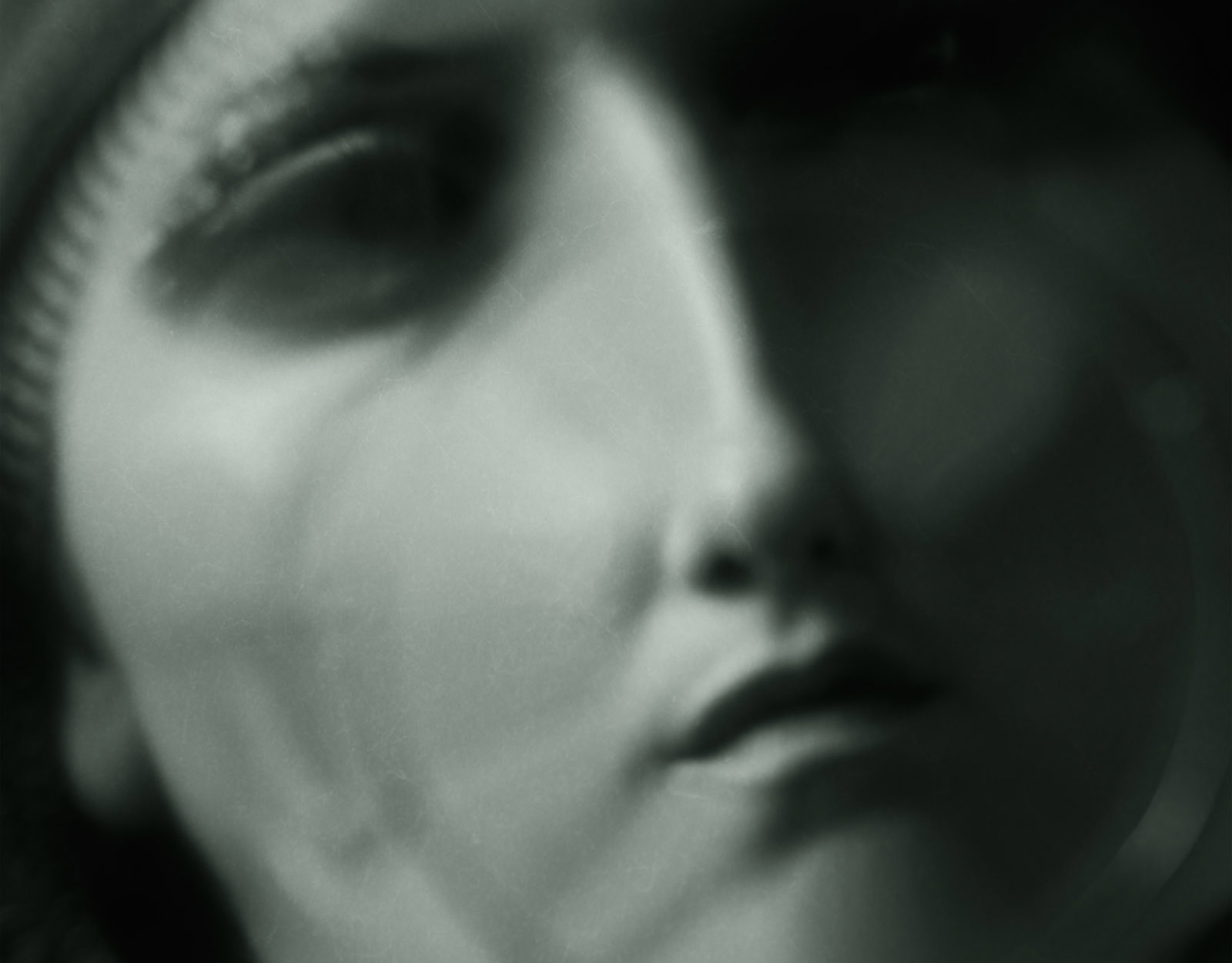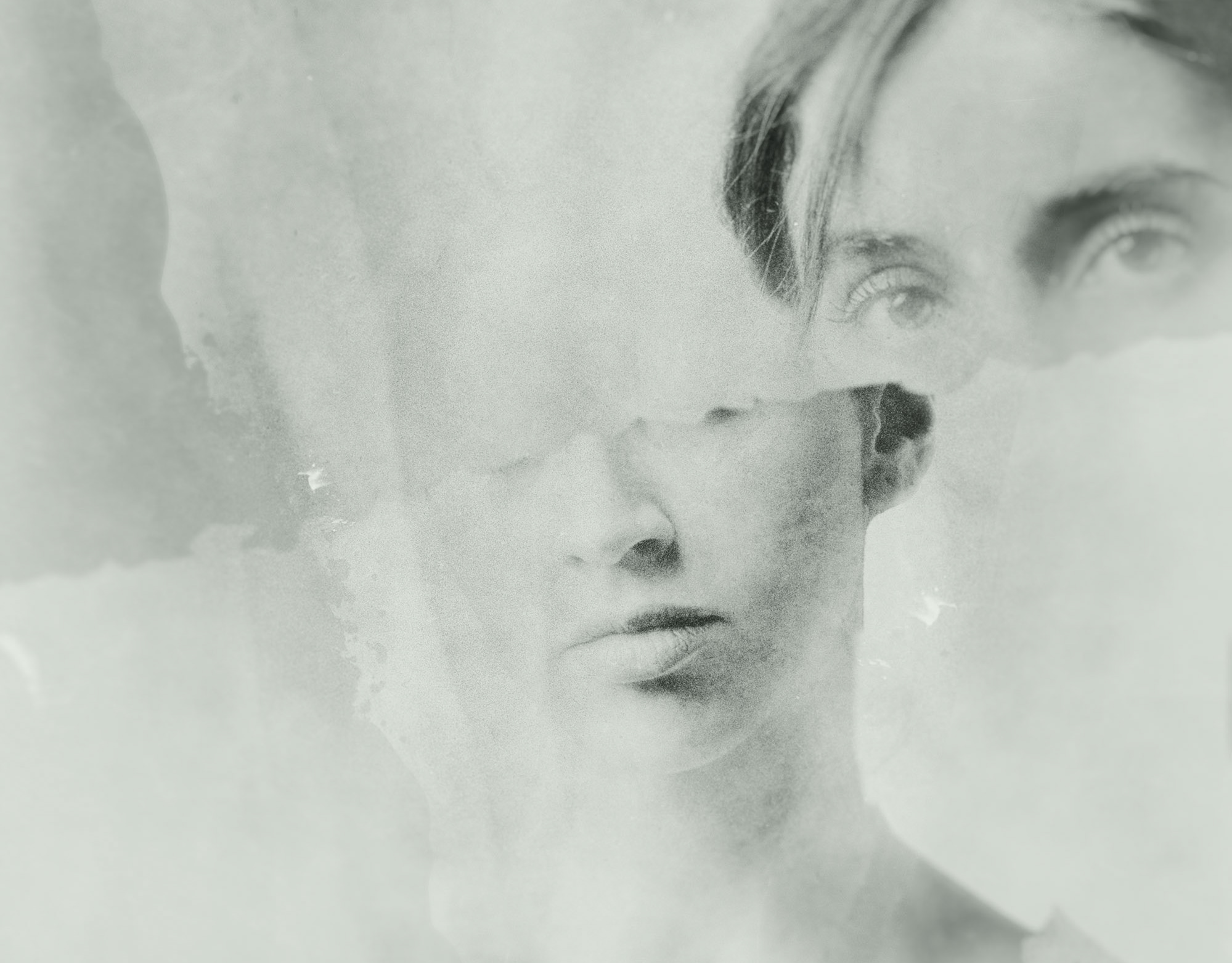Long before the townspeople knew him as the man who could provide a different face for each of life’s occasions, Octavio Caras was a young stagehand at the Teatro Escondido, sweeping away confetti and cigarette butts left behind by travelling vaudeville artists. One night, beneath a half-collapsed paper moon, he found a mask: lacquered and pale, with a serene smile that seemed carved from the idea of patience itself. He slipped it into his coat without telling a soul, certain it had been waiting for him.
It was soon after that he met Señorita Amparo Luz, who sold ribbons and sewing needles from her stall in the Plaza. Her voice had the clarity of water drawn from a deep well, and her eyes—though never unkind—always seemed to gaze elsewhere, toward something no one else could see.
The people of Hometown, never content to leave a mystery unanswered, told many stories about her refusals of suitors. The barber swore she was still waiting for a sweetheart lost at sea. The apothecary insisted she had been promised to a widowed cousin in another province. The town’s oldest widow said she had a heart too fine to risk breaking in marriage. Others claimed she had no interest in men at all. Amparo, who heard every version, never confirmed nor denied a single one.
Octavio’s courtship became a campaign of invention. On market days he appeared in hats of improbable width, claiming they kept the sun from burning his ideas; on feast days he carved mechanical birds that sang only when she passed; during the long rainy season he built a raft of flowerpots to sail down the flooded Calle de las Espinas, delivering her a single marigold as he drifted by.
Still, she was polite, she was amused—and she was unmoved.
One evening, studying the mask he had found in the theatre, he began to wonder whether a face might be more persuasive than words or gestures. With resin and cloth, he shaped new ones: a laughing face to draw her into shared delight; a face of quiet sorrow to invite her sympathy; a face of noble patience for those long afternoons when she would not meet his eyes.
Though the faces never won her, they drew the curiosity of others. The schoolteacher wished for the firmness of an authority she did not feel; the butcher’s wife wanted to soften her reputation for severity; the widower asked for a countenance untouched by grief. And the clockmaker, Don Nicanor Aguado, came one rainy afternoon, his hair smelling faintly of brass polish. He explained that he needed a face of permanent concentration, so customers would stop interrupting him with idle chatter. But as Octavio pressed the resin into the new expression, Don Nicanor confided something more: he had spent twenty years restoring a single magnificent clock, one whose pendulum swung so slowly you could not see it move unless you waited a full minute without blinking. He had come to believe that some things could only be accomplished if you gave them more time than you were likely to live.
Octavio recognised himself in that confession, though he said nothing.
In time, he opened a shop on the Calle de los Olvidados. People came not only for weddings, funerals, or seductions, but for quieter purposes: to borrow a look of resolve before asking forgiveness, or to acquire the calm expression of one who fears nothing.
Years passed. The children who had once stared through his window grew old enough to buy their own first faces. Some wore them until they could no longer be removed; others returned year after year, exchanging expressions as one might change coats with the seasons.
And yet, on certain afternoons, when the air was still and the light slanted gold across the rooftops, Octavio would take the long way home, passing the narrow lane that ran behind Amparo Luz’s house. From there he could see into her back garden, where she sometimes stood with her hands lifted in the air, fingertips grazing at nothing he could discern.
He never knew what she was tending to—a vine invisible to him, perhaps, or some delicate sewing strung between the sunlight and her fingers. But in those moments her face was softened by a private tenderness he had never seen directed toward anyone else. She would lean close, peer intently, smile faintly as if in conversation, and Octavio, without meaning to, would slow his steps until he was standing still, watching.
Whatever it was she saw, it did not belong to him—he knew that—but it held her with a constancy he had long wished for himself. And so he would remain there for a moment longer, feeling both drawn in and kept at a distance, before turning away, leaving her in the company of her unseen companion.


